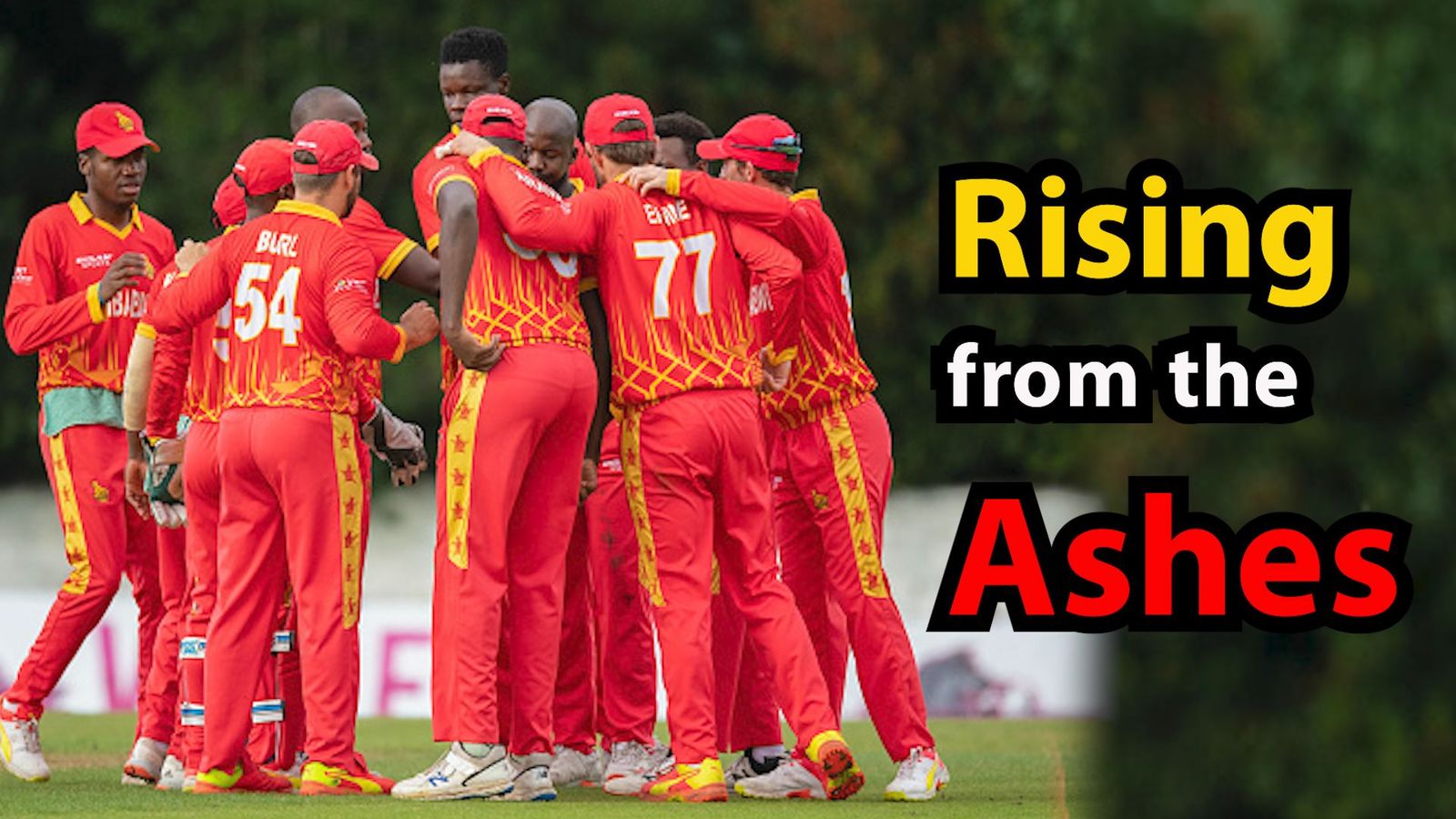The ICC T20 World Cup 2022 is kicking off in Australia on October 16. This will be the perfect opportunity for all 16 teams to prove themselves in the cricketing battlefield. Teams like India, Australia, New Zealand, England and Pakistan are considered strong contenders for the title, but one name that can surprise everyone is Zimbabwe.
Zimbabwe might not seem like a strong team on paper, but they have a strong status as a cricketing nation across the world. The upcoming World Cup will provide the players of the team with the perfect opportunity to prove themselves once again. With the side heading to Australia, we take a look at the rise and fall, and rise again, of Zimbabwe cricket which is buried in internal strife and political crisis.
Freedom from the colonizers
Zimbabwe was under British occupation and was established as a country on April 18, 1980, after the country was renamed Zimbabwe from Rhodesia. Much like the commonwealth countries, Zimbabwe also inherited cricket from the British. After 1980, they became an associate member of the ICC on July 21, 1981. The country also participated in the 1983, 1987 and 1992 Cricket World Cups.
In 1983, under the captaincy of Duncan Fletcher, Zimbabwe beat Australia in a show of their strength in the cricketing world.
Test status in 1992
Zimbabwe was granted Test status by the ICC in July 1992 and played their first Test match against India at the Harare Sports Club in October of the same year, becoming the ninth Test nation to play a Test match. But after getting Test status, Zimbabwe's performance was not the best and it was believed that they were given the status well ahead of their time. In their first 30 test matches, Zimbabwe could only win one match — against Pakistan.
Golden era
After overcoming all their difficulties by the end of the 20th century, 1997 to 2002 is considered the golden time of Zimbabwe cricket. This is because the country had the brother-duo of Andy and Grant Flower in the team. The two, while also grooming cricketers like all-rounder Andy Blignot and Heath Streak (who was later appointed the national captain), led the side to multiple tournaments.
Murray Goodwin was also a world-class batter, and so was David Houghton, who holds the record for the highest individual Test score for Zimbabwe — 266 runs — against Sri Lanka in 1994-95. Apart from this, players like their former captain and middle-order batter Alistair Campbell, leg-spinning all-rounder Paul Strang, Edo Brands, and fast bowler and opener Neil Johnson took their team to the summit of the sport. But this golden age was not everlasting.
Internal strife and economic crisis
At a time when Zimbabwe was touching their pinnacle on the pitch, there was a political situation growing in the country. Many players such as Travis Friend, Andy Blignot, Hamilton Masakadza, Douglas Hondo and Craig Wishart either retired from international cricket and left Zimbabwe and moved abroad.
This led to a major decline as the Zimbabwe Cricket Board continued to deteriorate. Due to their continuous decline in performance, the ICC banned Test cricket in Zimbabwe in 2005 as most of their players either left or because of a dispute with the board, refused to play.
Slight improvement in 2011
From 2005 to 2011, many incidents happened in Zimbabwe cricket. At the 2007 World Cup, Zimbabwe had to face defeat at the hands of Ireland. After this, it is believed that the South African Cricket Board also extended a helping hand towards Zimbabwe cricket, but this did not benefit much. But at the 2011 World Cup, Zimbabwe did well. In another big boost, in the August of the same year, they were given back their Test status after six years in exile, and they hosted Bangladesh in a one-off Test match in Harare, registering a 130-run win.
ICC banned again
But political interference in the Zimbabwe Cricket Board was in abundance. This led to another ICC ban being implemented on July 18, 2019. Due to this ban, Zimbabwe could not qualify for the 2020 ICC T20 World Cup. However, after this, the board presented their explanation and in October the ban was lifted from the country.
Having qualified for the 2022 T20 World Cup, the team will now like to leave all their past turmoils behind and prove their cricket in the marquee tournament.


